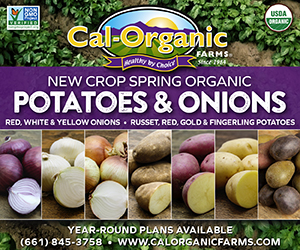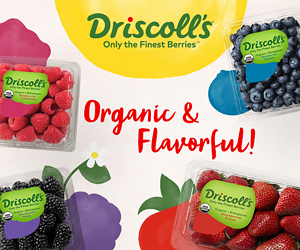Nestled in the upper region of the Hood River Valley lies 55 acres of biodynamic apples and pears. Owned by Brady and John Jacobson, Mt. Hood Organic Farms was first certified organic back in 1989; they were the first farm in Oregon to achieve organic status.
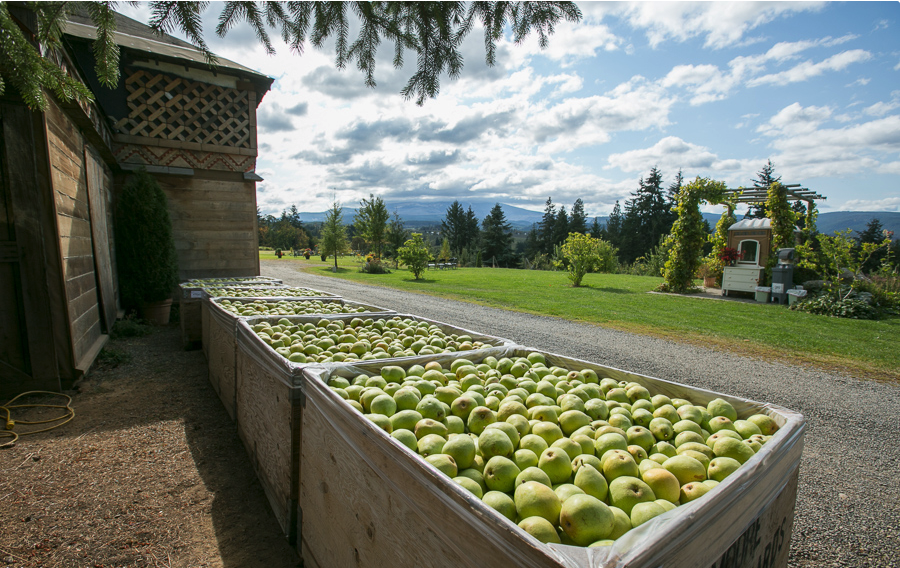 A glance at Mt. Hood Organic Farm's organic apples!
A glance at Mt. Hood Organic Farm's organic apples!
In an effort to achieve a deeper meaning of organic, they began integrating the entire 200-acre property and its natural landscape and wildlife into their farming practices. It was a natural next step to become a Demeter certified Biodynamic® farm which incorporates natural land stewardship. Brady and John work in cooperation with nature's rhythms producing delicious apples, pears and ciders.
“I have to emphasize that while I’ve been drawn to Biodynamic® practces since the early 70’s, I am no 'expert' on the subject,” shared Brady. “I spent time at UC Santa Cruz and saw what Alan Chadwick was doing with his French Intensive gardens. He studied Steiner and incorporated a lot of Biodynamic® practices but was never strict about using the preparations,” she said.
“Biodynamic® calls itself 'spiritual agriculture,' and I think that’s what guides many of us,” Judy shared. “It’s all very intuitive but also based on science. Mt. Hood Organic Farms is a wild setting next to a national forest with abundant wildlife. We decided that we would have to co-exist with the creatures here and suffer some loss, but we wanted to create a refuge. So, we fenced each orchard block separately and allowed for wildlife corridors running through the property so animals could move from the forest to the river undisturbed,” she stated.
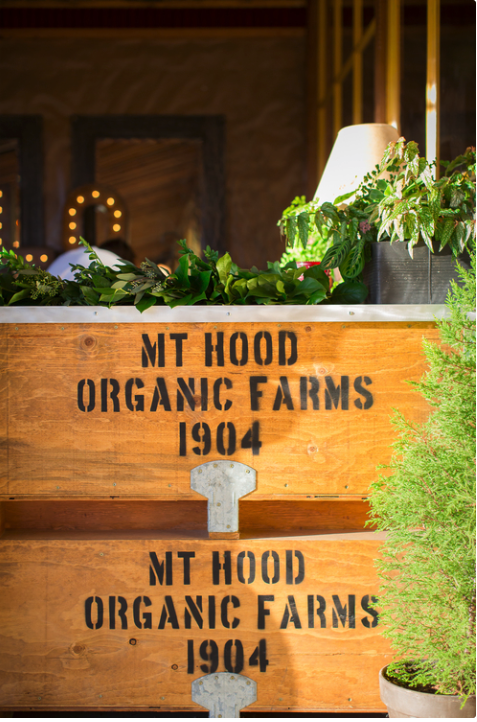 Organic apple shipping boxes being used as decor around the farm.
Organic apple shipping boxes being used as decor around the farm.
Being an organic farm, the Jacobson’s stopped using synthetic chemicals, they re-forested parts of the property, started composting, and planted acres of flowers and shrubs to create habitat for beneficial insects and to help counter the monoculture of the tree fruits. They also created various water features – ponds and a lake – to help with water management and to attract birds, amphibians and other wild life.
Because of all the work the Jacobson’s did to set their farm up for biodiversity, transitioning to Demeter certified in 2004 was a logical next step. And, like the organic label, the Demeter Biodynamic® farm label is slowly gaining popularity.
“There is building recognition of Biodynamic® in the produce industry, thanks in part to people like Scott Schultz at Pacific Coast Produce, Bu Nygrens of VV, Whole Foods, Earls Organics and other east coast distributors,” said Brady. “We never expected to get any kind of a premium for being Demeter certified, and it wasn’t a marketing decision since we had been farming this way all along. For a while, we were the largest Demeter-certified orchard in the US,” she shared.
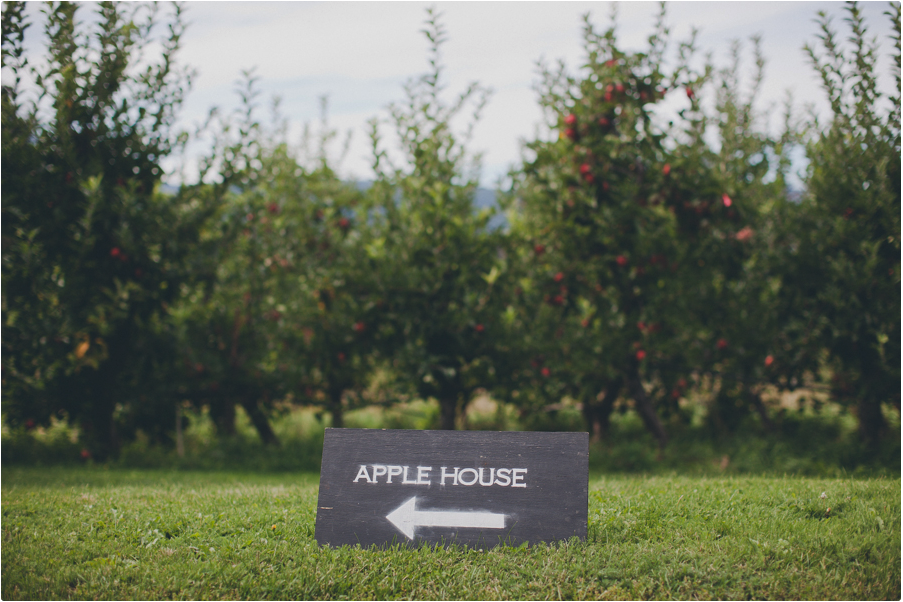 Organic apple orchards on the way to the Apple House!
Organic apple orchards on the way to the Apple House!
While growing recognition is a benefit, it’s not the main motivation for Mt. Hood Organic Farms to continue their biodiversity practices. “Creating a farm that co-exists in harmony with nature, as much as it’s possible to do that, is what motivates us,” Brady continued, “Given the constant destruction of wildlife habitat and our precious soils, how can a sentient being do anything less than farm with empathy for our planet?”
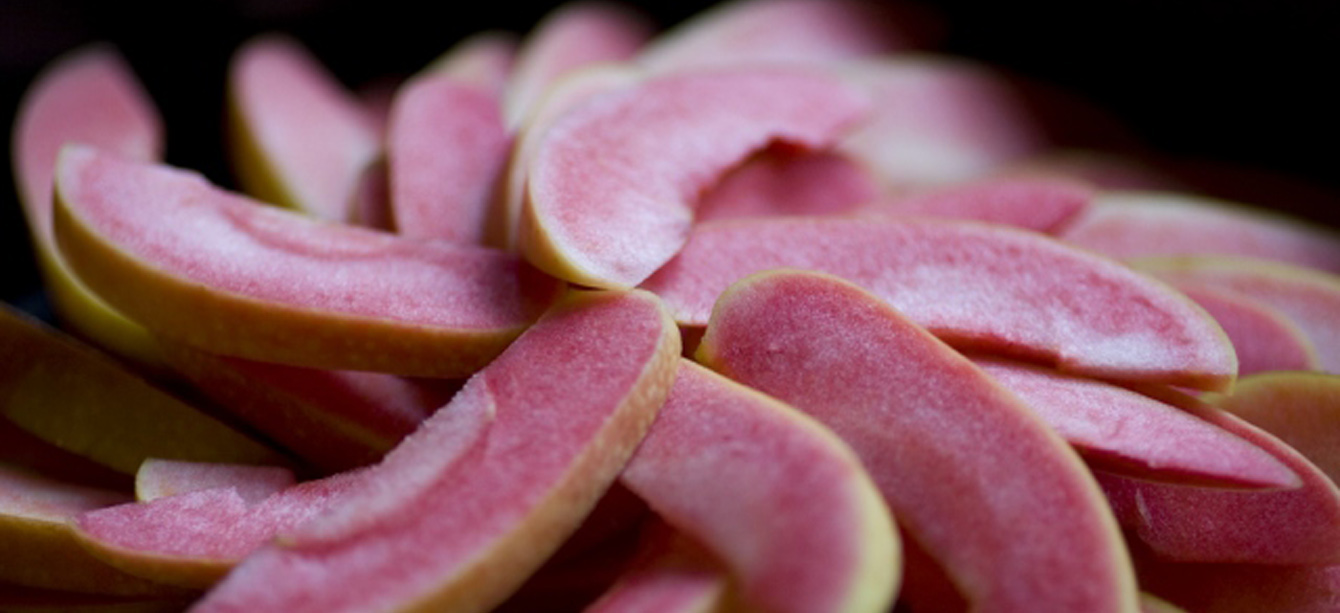 Just one of many different apple varieties at Mt. Hood Organic Farms!
Just one of many different apple varieties at Mt. Hood Organic Farms!
The Biodynamic® Association’s 2018 conference, Transforming the Heart of Agriculture: Soil, Justice, Regeneration, will be in Portland this year, November 14-18. The Mt. Hood Organic Farms is included in the tours.

